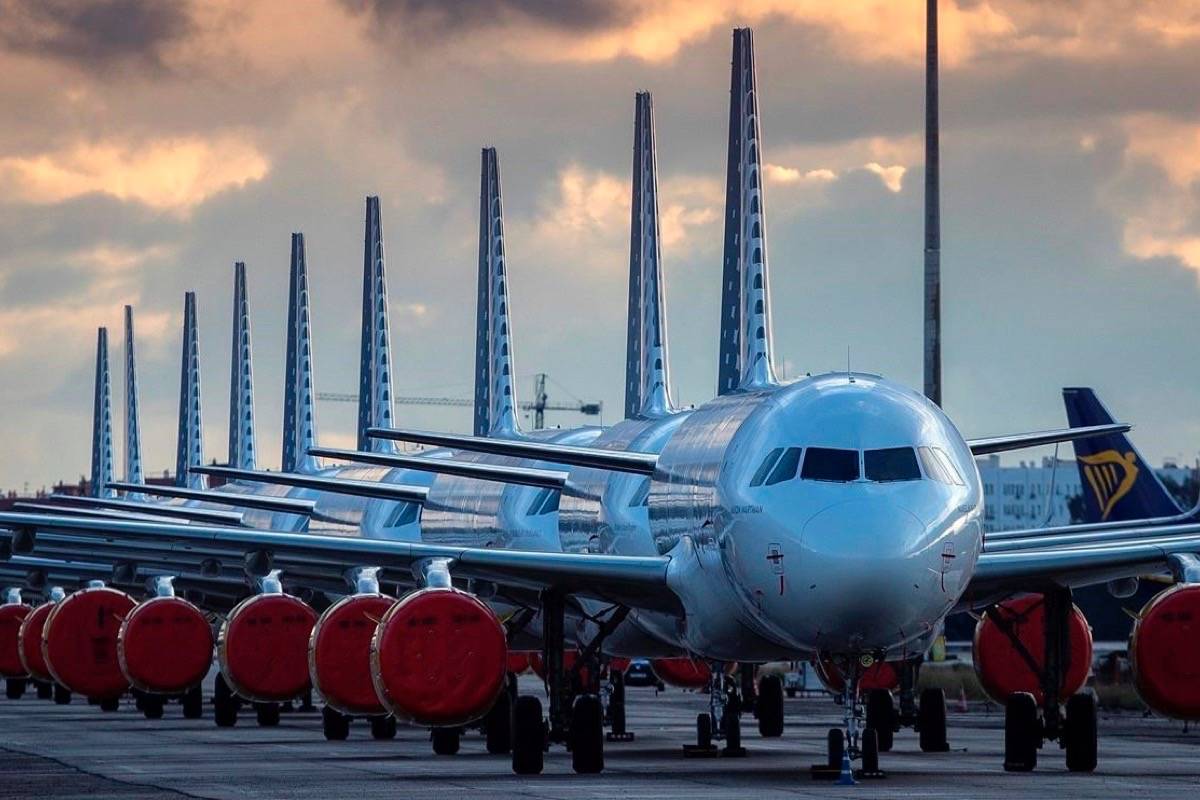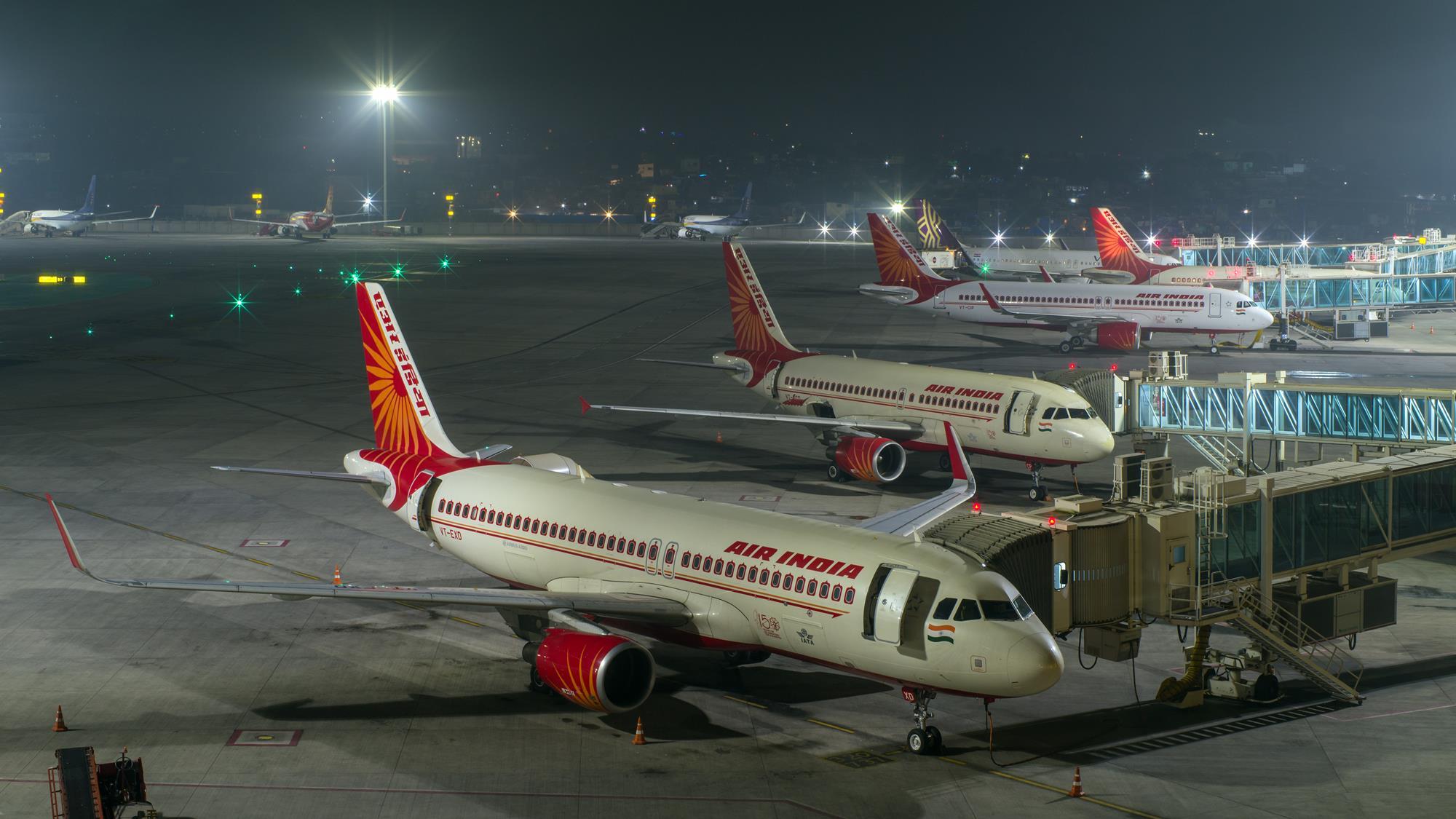 Airlines are Grounding a big chunk of their fleet due to lockdown, poor occupancy, as Coronavirus spreads rapidly. (Photo: Internet).
Airlines are Grounding a big chunk of their fleet due to lockdown, poor occupancy, as Coronavirus spreads rapidly. (Photo: Internet).
Singapore Airlines (SIA) says it will be cutting 96 per cent of the capacity that had been originally scheduled up to end-April, given the further tightening of border controls around the world over the last week to stem the Covid-19 outbreak. This move, the company says, will result in the grounding of around 138 SIA and SilkAir aircraft, out of a total fleet of 147, amid the greatest challenge that the SIA Group has faced in its existence. The Group’s low-cost unit Scoot will also suspend most of its network, resulting in the grounding of 47 of its fleet of 49 aircraft. “It is unclear when the SIA Group can begin to resume normal services, given the uncertainty as to when the stringent border controls will be lifted,” the company said in a statement on March 23 adding that “the resultant collapse in the demand for air travel has led to a significant decline in SIA’s passenger revenues.”
Long-haul carrier Emirates says it will suspend all passenger flights beginning Wednesday, March 25 over new coronavirus outbreak. The decision is a major one for the Dubai-based, government-owned airline built on linking the East to the West. “We find ourselves in a situation where we cannot viably operate passenger services until countries re-open their borders, and travel confidence returns,” the airline said in a statement on March 22.
India Impact
India, that has over 680 commercial aircraft’s (over 550 operational at any point of time), may see 150-plus aircraft’s grounded very soon. Till March 18, over 40 aircraft’s belonging to various private carriers and Air India were grounded as the threat of Coronavirus spreading increased. In the next 10-days, the number of grounded aircraft’s may double as fewer passengers take to the skies after lockdown has been announced across 75 districts across half-dozen States. In the current week, more State governments are expected to announce partial or complete lockdown in their respective States to break the transmission of Covid-19.
IndiGo, with a fleet of over 250 aircrafts, already announced a reduction in flights on March 20. “We are trimming our domestic India operations by approximately 25 per cent for now,” the company had said. “IndiGo, India’s largest airline, has reduced its domestic schedule to match market demand over the next few weeks,” it had said in a statement. “On Sunday 22nd March, in line with the Janata Curfew announced by the Prime Minister on 19th March, the airline will be operating approximately 60% of its normal domestic schedule, in order to accommodate those with urgent travel requirements on that day.”
 India, that has over 680 commercial aircraft’s (over 550 operational at any point of time), may see 150-plus aircraft’s grounded very soon. (Photo: Internet).
India, that has over 680 commercial aircraft’s (over 550 operational at any point of time), may see 150-plus aircraft’s grounded very soon. (Photo: Internet).
“Going forward, responding to the various travel restrictions imposed worldwide, most of our international flights are suspended and additionally, given the reduction in domestic demand, we are trimming our domestic India operations by approximately 25% for now,” it had said adding “In this fluid situation, IndiGo will continually review operations to match capacity to demand.”
International aviation consultancy firm—Centre for Aviation or CAPA—has predicted a significant impact on the Indian airline industry, including the initial grounding of 150 planes, retrenchments and an April-June combined loss of up to $600 million for carriers excluding Air India.
Last week, Mumbai-based GoAir said it would suspend international operations between March 17 and April 15. The airline also said it was offering a temporary rotational leave without pay to its staff. It has already announced terminating of contracts of expat pilots. As of January, the airlines reportedly had 600 pilots, large numbers of them were of foreign origins.
Vistara, a joint venture between Tata Sons and Singapore Airlines, said it was “suspending its international operations from 20 March 2020 to 31 March 2020”. The airline operates 250 daily flights of which six are to international destinations. It flies to Dubai, Singapore, Bangkok, Colombo and Kathmandu.
Alexandre de Juniac, IATA’s Director General and CEO has already termed this period as “extraordinary times” requiring “unprecedented measures” as Safety—including public health—is always a top priority. “Governments must also recognize that airlines—employing some 2.7 million people—are under extreme financial and operational pressures. They need support,” said Juniac in the first week of March.
On 5 March 2020, IATA estimated that the crisis could wipe out some $113 billion of revenue. That scenario did not include such severe measures as the US and other governments (including Israel, Kuwait, and Spain) have since put in place.
The US measures is expected to add more financial pressure. The total value of the US-Schengen market in 2019 was $20.6 billion. The markets facing the heaviest impact are US-Germany ($4 billion), US-France ($3.5 billion) and US-Italy ($2.9 billion). Now that is completely shut. “This will create enormous cash-flow pressures for airlines. We have already seen Flybe go under. And this latest blow could push others in the same direction. Airlines will need emergency measures to get through this crisis. Governments should be looking at all possible means to assist the industry through these extreme circumstances. Extending lines of credit, reducing infrastructure costs, lightening the tax burden are all measures that governments will need to explore. Air transport is vital, but without a lifeline from governments we will have a sectoral financial crisis piled on top of the public health emergency,’ said de Juniac.
Cre: Businessworld
Nguyen Xuan Nghia – COMM









